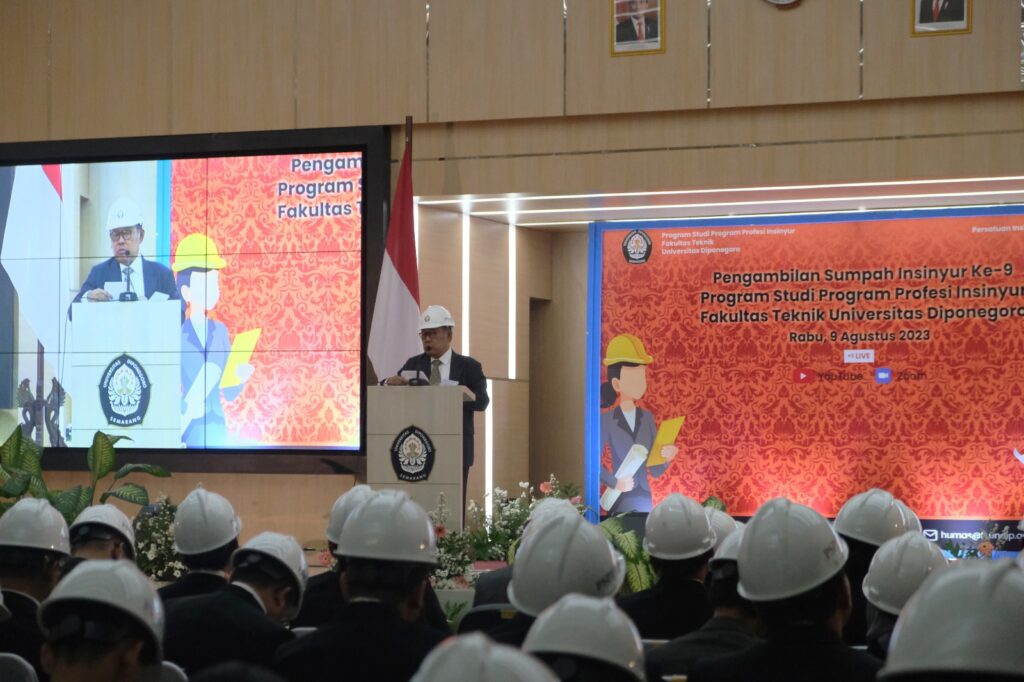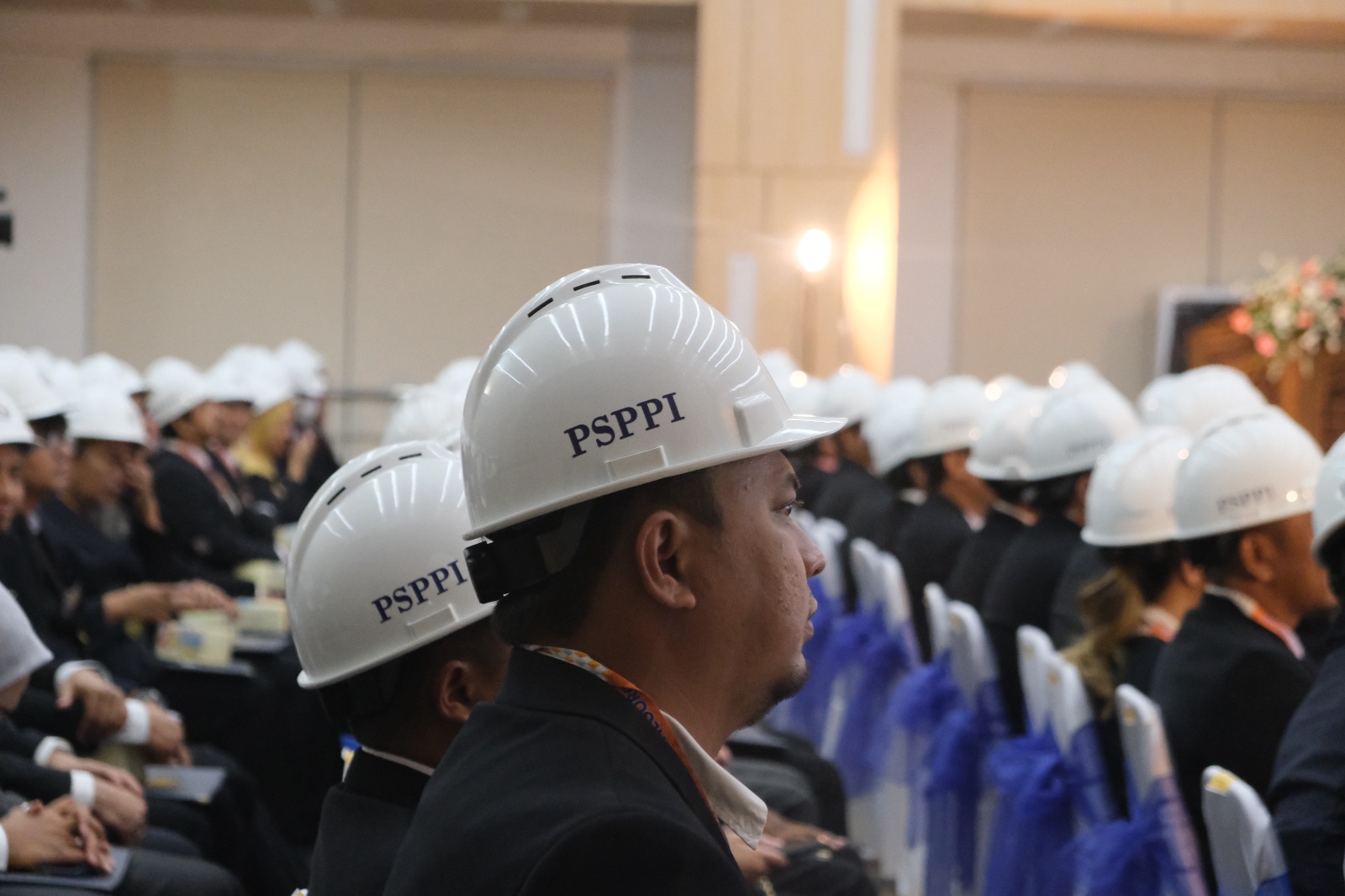(9/8) The Study Program of the Professional Program for Engineers (PSPPI) of the Faculty of Engineering Undip held the oath-taking ceremony for the ninth time. This oath-taking ceremony was held offline and online at the Engineering Hall, Dekanat Building 5th Floor. In this event, also present the Vice Rector of Resources, Prof. Dr.rer.nat. Heru Susanto, S.T., M.M., M.T. and the General Secretary of the Institution of Engineers Indonesia (PII), Ir. Bambang Goeritno, M.Sc, MPA, IPU, APEC Engineer, to supervise the oath-taking ceremony in this period.
At this time, PSPPI of the Faculty of Engineering Undip successfully graduated 193 new engineers from various regions to be ready to serve Indonesia. The Head of the PSPPI of the Faculty of Engineering Undip, Prof. Dr. Ir. Widayat, S.T, M.T, IPM, ASEAN Eng said PSPPI of the Faculty of Engineering Undip implemented a two-class system for this period, namely Regular-Compacted Class and Recognition of Past Learning (Rekognisi Pembelajaran Lampau, RPL). Those two classes aim to facilitate engineers with work experience that has not passed the minimum standard so that they can have the same good quality as those who have a lot of experience when they graduate. “In this period, we are conducting two classes. The first one is the Regular-Compacted class, which is for those with minimum experience. So we teach around 18 engineers for that class. Then the rest is the Recognition of Past Learning class which is taken in one semester,” said Prof. Widayat
He also added that for now, PSPPI of the Faculty of Engineering Undip is improving the quality of their teaching by preparing themselves to achieve the Excellent accreditation status. “We ask for your blessing and also help from the engineers who graduate from PSPPI of the Faculty of Engineering Undip to support us so that we can achieve the Excellent status in the future,” he said.

The General Secretary of the Institution of Engineers of Indonesia (PII), ), Ir. Bambang Goeritno, M.Sc, MPA, IPU, APEC Engineer, in his remarks, said that other professional programs for engineers, such as PSPPI of the Faculty of Engineering, is important to be held because it is related to the moral commitment to show professionalism while working in the real working. For him, any technical competencies are not enough to show professionalism. “Above one’s technical competence the professionalism. People may have high competence but not necessarily be professional. But, to be professional you need high competencies,” he said.
The Dean of the Faculty of Engineering, Prof. Ir. M. Agung Wibowo, M.M, M.Sc, Ph.D hoped that in the future PSPPI of the Faculty of Engineering can collaborate with other professional engineering programs from other countries thus it can improve its quality and able to compete with global demands. “We also need to collaborate with other professional engineering programs abroad so that we can implement a credit transfer system. These are the keys to improving our human resources. Because after all, we are competing with Vietnam, we must be able to beat Thailand, because our infrastructure spending is quite large,” he said.
In this period, there are several academics from the Faculty of Engineering Undip who were also inaugurated as engineers. Some of them are the Head of Administration of the Faculty of Engineering Undip, Ir. Ari Eko Widyantoro, S.T, M.T, IPM, the Head of the Department of Electrical Engineering, Ir. Aghus Shofwan, S.T, M.T, Ph.D, IPU, and several lecturers from the Department of Civil Engineering, Department of Chemical Engineering, Department of Electrical Engineering, and Department of Naval Architecture. This shows how committed the Faculty of Engineering Undip in supporting the improvement of the competence of its academics so that they can provide better services and become a model for the students. “This is proof of how we also support our staff to continue their study. Because lifelong learning is one of the things we encourage in the Faculty of Engineering. Because for us, human resources are the key,” said Prof. Agung.

